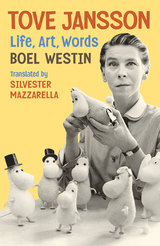6 start with U start with U
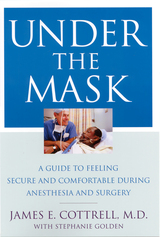
Every year, about forty million Americans require surgery. Few truly understand what happens to them during the procedure-especially what the anesthesiologist does to ensure their survival and well being. An anesthesiologist disarms your entire nervous system with the most effective drugs for your body chemistry; keeps you alive while you're subjected to manipulations that would otherwise kill you; and ensures your safe return to consciousness. Yet despite their crucial role, anesthesiologists are often the unseen doctors. Under the Mask, written by a compassionate practitioner, demystifies the surgical process with detailed information that will make you a better-informed consumer.
Part One describes the development and current scope of anesthesiology, the medications and techniques used, and what the anesthesiologist does both in and outside the operating room. It explains your-the patient's- rights and advises you how to use the preoperative consultation with the anesthesiologist to your best advantage, specifying what information you need provide and what questions you should ask.
Part Two details the most common surgical and diagnostic procedures requiring anesthesia or conscious sedation. Using clear language, it explains each procedure, the possible risks, and the choices to make if there is more than one option. It also covers the anesthesiologist's crucial role in controlling pain caused by chronic conditions. The last chapter describes the newest anesthetic and pain control techniques available.
The author also helps you understand anesthesiology within the managed care system and explains what you can expect and what to do if you aren't getting what you need. This book enables you to make informed decisions regarding surgical anesthesia and subsequent pain control within the managed care system to protect your well-being and hasten your recovery.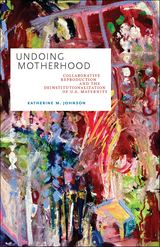
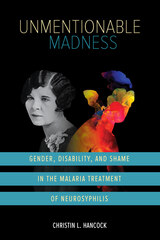
Christin L. Hancock looks through the lens of feminist disability to examine the popular but ethically suspect treatment and its consequences. As Hancock shows, the treatment’s purported success rate relied on the disabled minds and bodies of people incarcerated in mental hospitals. The backgrounds and identities of these patients reflected and perpetuated attitudes around poverty, gender, race, and disability while betraying authorities’ desire to protect the public from women and men perceived as abnormal, sexually tainted, and unworthy of community life.
Paying special attention to the patients’ voices and experiences, Unmentionable Madness offers a disability history that confronts the ethics of experimentation.
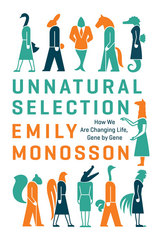
Monosson reveals that the very code of life is more fluid than once imagined. When our powerful chemicals put the pressure on to evolve or die, beneficial traits can sweep rapidly through a population. Species with explosive population growth—the bugs, bacteria, and weeds—tend to thrive, while bigger, slower-to-reproduce creatures, like ourselves, are more likely to succumb.
Monosson explores contemporary evolution in all its guises. She examines the species that we are actively trying to beat back, from agricultural pests to life-threatening bacteria, and those that are collateral damage—creatures struggling to adapt to a polluted world. Monosson also presents cutting-edge science on gene expression, showing how environmental stressors are leaving their mark on plants, animals, and possibly humans for generations to come.
Unnatural Selection is eye-opening and more than a little disquieting. But it also suggests how we might lessen our impact: manage pests without creating super bugs; protect individuals from disease without inviting epidemics; and benefit from technology without threatening the health of our children.

Unstable Frontiers was first published in 1994. Minnesota Archive Editions uses digital technology to make long-unavailable books once again accessible, and are published unaltered from the original University of Minnesota Press editions.
"John Erni's heartfelt and insightful book is a valuable contribution to the study of the cultural politics of AIDS."–Jeff Nunokawa Princeton University
The "cure" for AIDS: The search goes on, keeping pace with our belief that AIDS is incurable. How such a seeming paradox works-and how it may well work against the proper treatment of the disease-is the subject of Unstable Frontiers, a probing, critical look at the cultural politics behind the quest for a cure for AIDS.
This massive commercial and scientific project, John Erni suggests, actually hinges on our contradictory definitions of the disease as curable and incurable at the same time. Drawing on diverse sources, from popular media to medical literature to cultural theory, he shows how the dual discourse of curability/incurability frames the way we think about and act on issues of medical treatment for AIDS. His work makes a major advance in our understanding of—and, perhaps, humane response to—a national crisis.
In his critique of the logic and fantasies underlying the double definition of AIDS, Erni explores a broad range of issues: the scientific paradigm used to develop AZT; the politics of alternative treatment practices, of clinical drug trials, and of AIDS activism; and the notions of time and temporality operating in AIDS treatment science. He also addresses the problematic popular themes, such as "AIDS is invariably fatal" and "Knowledge = Cure."
Unique in its approach to a social and political issue still in the making, the book reveals how AIDS has challenged technomedicine's historical position of authority-and in doing so, recasts this challenge in a powerful and ultimately hopeful way.
John Nguyet Erni is assistant professor of communication at the University of New Hampshire. He has published essays on AIDS and is currently working on a book about AIDS in Thailand.
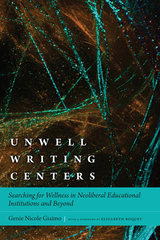
The book is broken into sections based on journeying: searching for wellness, finding wellness, and imagining a “well” future that includes a sustainable model of writing center work. Each chapter begins with a personal narrative about wellness issues in writing centers, including the author’s experiences in and responses to local emergencies. She shares findings from a longitudinal assessment study on non-institutional interventions in writing centers and provides resources for administrators to create more ethical "well" writing centers. The book also includes an appendix of training documents, emergency planning documents, and several wellness-specific interventions developed from anti-racist, anti-neoliberal, and organizational theories.
Establishing the need for a field-specific response to the austerity-minded eruption of wellness-focused interventions in higher education, Unwell Writing Centers is a critical text for graduate students and new directors that can easily be applied in workplaces in and outside of higher education.
READERS
Browse our collection.
PUBLISHERS
See BiblioVault's publisher services.
STUDENT SERVICES
Files for college accessibility offices.
UChicago Accessibility Resources
home | accessibility | search | about | contact us
BiblioVault ® 2001 - 2024
The University of Chicago Press






